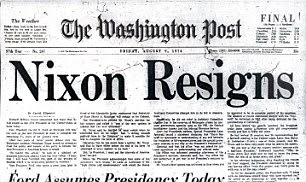Yesterday, the Trump administration took the extraordinary step of barring several major media organizations in the White House press corps from attending an official briefing. It was a move New York Times editor Dean Baquet characterized as unprecedented.
“Nothing like this has ever happened at the White House in our long history of covering multiple administrations of different parties,” Baquet maintained in a statement.
Barred from the gathering in addition to The New York Times were CNN, Politico, The Huffington Post, BuzzFeed News, BBC, The Daily Mail, and The Los Angeles Times.
White House Press Secretary Sean Spicer canceled a scheduled on-camera briefing in favor of the closed briefing in his office, and reporters from the banned outlets were turned away by White House staff at the door. Reporters from the AP and Time left in solidarity with the ousted press corps members.
Citizens should be concerned. And writers, in particular, must stand in solidarity with our sisters and brothers in the news media.
Before I began my career as an academic, I was a professional journalist working for a newspaper in northwestern Ohio. At The Kenton Times, a small-town daily, my job was to cover several beats as one member of a staff of five. I spent my days covering the county commissioners and my nights at meetings of various school boards. I covered breaking news and wrote features, and I had a popular weekly column. I wrote about farm news and religion and local events, and when I was between stories, I’m the person who typed up obituaries and dealt with news releases. I even took pictures at basketball games at the local university, and I covered wrestling when the sports staff needed an extra hand. It was an all-hands-on-deck operation.
It sounds like a far cry from The New York Times, doesn’t it? But here’s the thing: It’s not.
In my life as a reporter, I was driven by a singular mission, which was to inform my readers—the Hardin County, Ohio, public—of decision-making that would impact their lives. I covered rising and falling prices for their soybean harvest, and I covered discrimination at the local high school. I covered murders and accidents, and when the KKK came to pick up trash along a local highway, I covered that, too.
I recently read that the readership of The Times had grown by tens of thousands since election day, and as a response, that newspaper (“the failing New York Times,” as our president describes it) will soon be increasing its newsroom staff by 8 percent to more than 750 people.
I remember how doggedly and purposefully my staff of five worked to be an effective watchdog of the governance structures for the 30,000 people in our county. And I know that the people who devote their energies to reporting to the news for The Times feel exactly the same way.
And so do reporters for Politico, HuffPo, CNN, and all of the other organizations Trump fears enough to exclude. A larger readership suggests even more dedication and purpose, with a larger audience to answer to. Maybe the White House reporter for The Los Angeles Times doesn’t spend her nights under a basketball hoop, training her lens upwards and anticipating the dunk, but those jobs and those missions are not so very different.
There is a piece of conventional wisdom that the right tries to promote about the media, and to my great consternation and sadness, it seems to have caught on even beyond that faction. Trump and company refer frequently to “the crooked media,” and despite an actual crisis with fraudulent reporting, often from other governments that wish to undermine our nation, they dare to blame critical reporting—the job of the media—on the phenomenon of “fake news.”
People on both the left and the right are becoming convinced that the members of the Fourth Estate are working against them, perhaps even monolithically, with the singular purpose of promoting a liberal agenda.
I have never believed in the notion that the mainstream media have a liberal bias. In fact, constant claims of the media’s liberality has resulted in coverage that bends over backwards to be “balanced,” even when much of the rhetoric that comes from the White House and the right seems completely unhinged. Equal treatment of fringe conservative views has effectively created a right-leaning mainstream media—but it can’t lean far enough right for the GOP, for whom critical thinking is not a treasured value.
What I do believe in is the essential goodness of the average reporter. I have seen reporters in action from venues big and small, and I know them to be dedicated servants to their audiences. I know them as brave and principled. The reporters I know are ethical and driven, and they seek only to inform and educate their publics.
If we buy into the idea that the media are all on the take—that they cover the news with nefarious agendas and evil purposes—then we’re playing into the hands of totalitarians. After all, it’s the thief who decries the watchdog.
I have high regard for writers—from poets who report on deep, spiritual truths to journalists who report on the actions of our government. And when writers face threats to access and to free expression, I rise up to stand beside them.


Excellent post, as usual. I truly value your perspective, Karen.
ReplyDeleteThank you so much! This one is important to me. <3
Delete